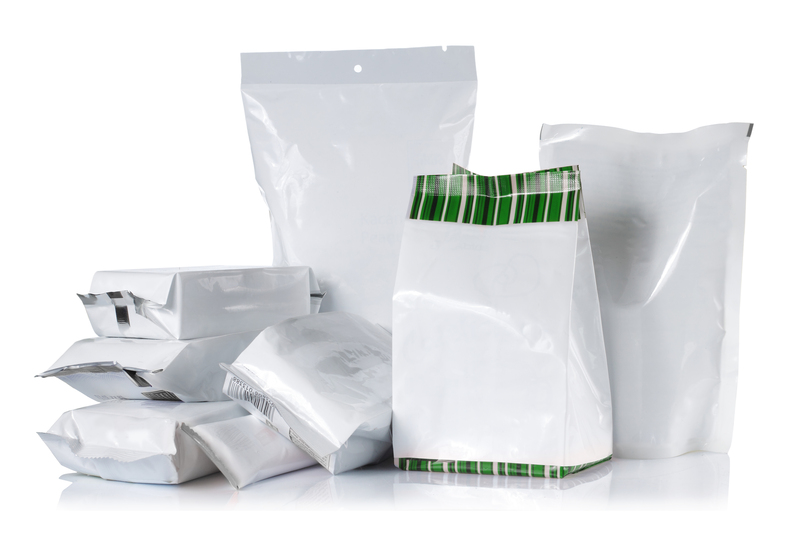Green Living: Residential Junk Collection Tips
Posted on 09/11/2024
Green living is more than just a buzzword; it's a way of life that focuses on reducing environmental impact through sustainable practices. One key area in which individuals can make a significant difference is through effective residential waste collection. By implementing eco-friendly strategies, you can reduce your carbon footprint and contribute to the health of our planet. Here are some practical tips for optimizing residential waste collection.
1. Understand Your Local Waste Management System
Every community has its own waste management regulations and facilities. Familiarize yourself with the local guidelines to ensure you are disposing of your waste correctly. This can include separate bins for recyclables, organic waste, and general trash. Some areas even offer specialized disposal options for items like electronics, batteries, and hazardous materials.

2. Reduce, Reuse, Recycle
The 3 R's--Reduce, Reuse, and Recycle--form the backbone of green living. Reduce the amount of waste you produce by opting for products with minimal packaging. Reuse items whenever possible, such as repurposing jars, bottles, and old clothing. Finally, make recycling a habit; separate your recyclables as per local guidelines and ensure they are clean and dry before disposal.
3. Compost Organic Waste
Organic waste like food scraps and yard debris can be composted to create nutrient-rich soil for gardening. Setting up a compost bin in your backyard or even a small composting system in your kitchen can significantly reduce the amount of waste sent to landfills. Additionally, some municipalities offer compost pick-up services, making it easier than ever to compost.
4. Opt for Eco-Friendly Products
When shopping, choose products that are biodegradable or made from recycled materials. Look for eco-friendly certifications such as Energy Star, Fair Trade, or USDA Organic. These choices can minimize the environmental impact of production and disposal.
5. Avoid Single-Use Plastics
Single-use plastics are a major environmental hazard. Opt for reusable alternatives like stainless steel water bottles, cloth shopping bags, and glass containers. By avoiding single-use plastics, you can drastically reduce the amount of plastic waste you generate.
6. Properly Dispose of Hazardous Waste
Items like batteries, paints, and chemicals should never be thrown in the general trash. These materials can be harmful to the environment and should be disposed of at designated hazardous waste facilities. Check with your local waste management service for collection events or drop-off locations.
7. Educate Your Household
Green living is a collective effort. Ensure that everyone in your household understands the importance of proper waste disposal and recycling. Set a good example and involve the family in waste reduction activities. Teaching children about sustainability from a young age can inculcate lifelong eco-friendly habits.
8. Monitor and Adjust
Tracking your waste can offer valuable insights and help you set goals for reduction. Keep an eye on how much waste your household generates and adjust your practices accordingly. Over time, these small changes can make a significant impact.
Pros and Cons of Junk Collection
Understanding the pros and cons can help you make informed decisions.
Pros:
- Reduces landfill waste
- Conserves natural resources
- Promotes a healthier environment
- Encourages responsible consumption
Cons:
- Can be time-consuming initially
- May require space for separate bins and composting
- Initial costs for eco-friendly products may be higher
Final Tips
- Use a waste audit to identify and target waste reduction opportunities.
- Participate in community clean-up events to promote local environmental health.
- Advocate for stricter waste management policies within your community.

Key Takeaways
- Reduce, Reuse, Recycle is fundamental for green living.
- Composting can significantly decrease landfill contributions.
- Proper disposal of hazardous waste is crucial for environmental safety.
- Education and involvement of all household members amplify efforts.
Conclusion
Adopting green living practices in residential waste collection not only benefits the environment but also promotes a healthier lifestyle. While there may be some initial challenges, the long-term gains make it worthwhile. By understanding and implementing these tips, you can contribute to a more sustainable future. Green living starts at home, and every small effort counts towards a larger positive impact.
Latest Posts
Planet-Friendly Disposal Strategies
House Waste Removal Made Easy: Top 5 Tools
Hard Rubbish: Identification & Disposal Tips





